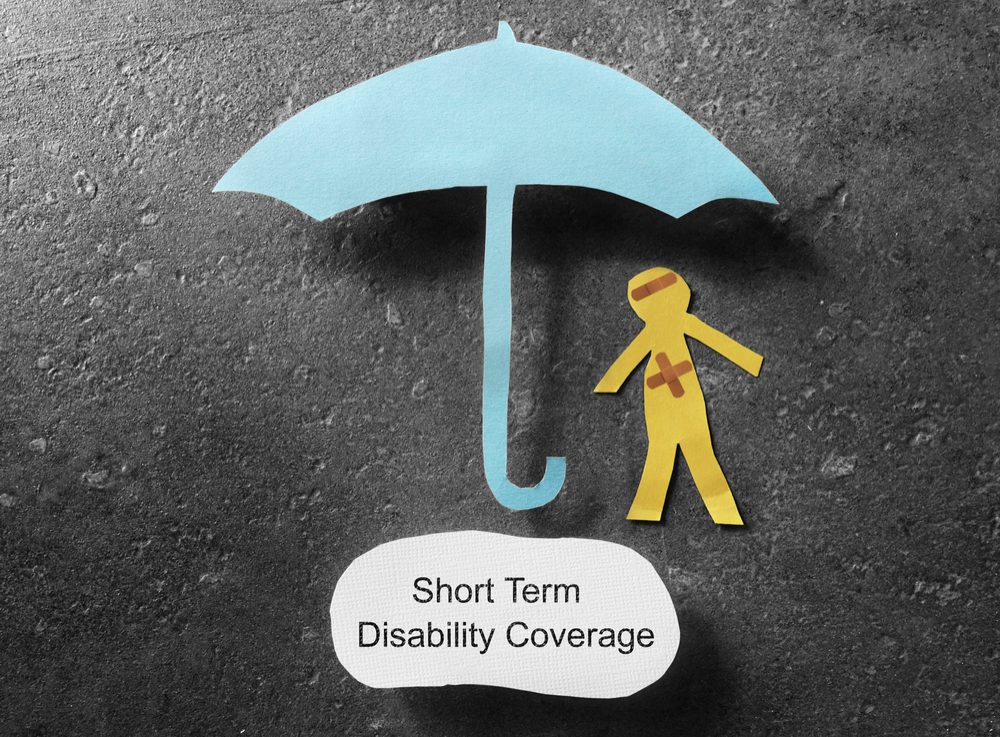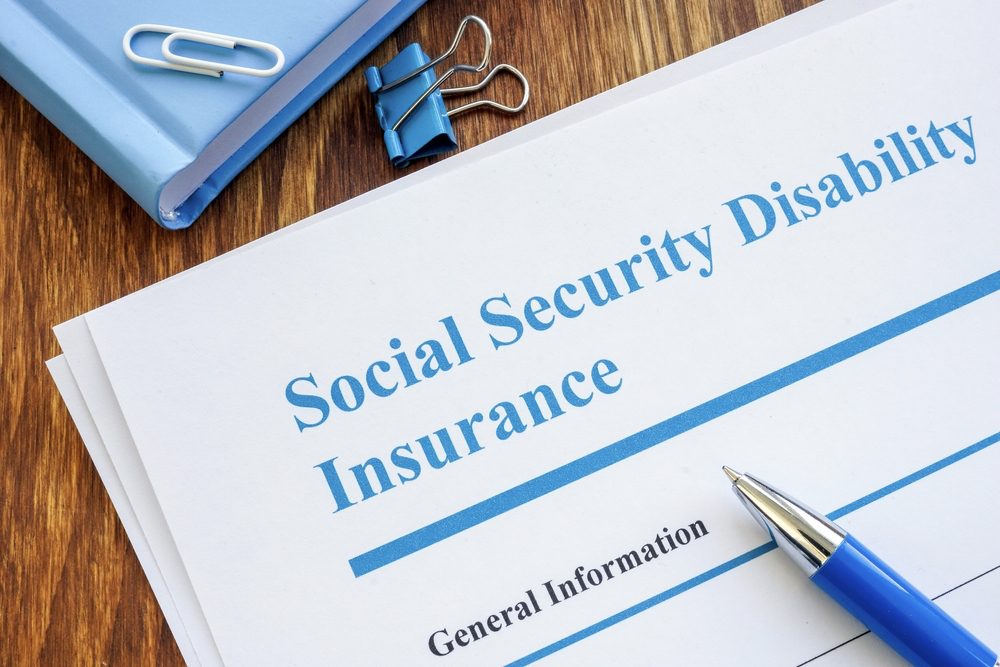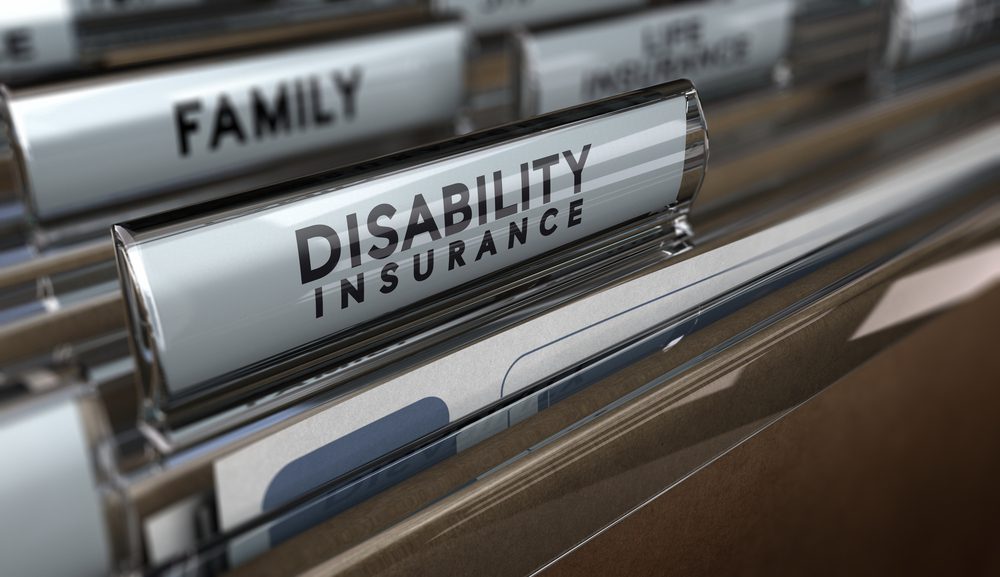Your earnings cover almost everything. This money includes housing and utilities to food and childcare, among other things. Therefore, losing your job due to an unexpected circumstance can be devastating financially.
The good news is that disability insurance can fill this gap in your financial safety net. You can consider it a backup plan that protects your income if you cannot work due to illness or injury. This comprehensive guide discusses what it means to have disability insurance. Learn what it is and why it is a must for your financial security. Most of all, learn how to get coverage through work or on your own.
What is disability insurance?
The official definition of disability insurance, as the name implies, is that it’s a type of insurance that pays out if you cannot go to work and earn an income due to a disability. Disability insurance is also well-known as income protection insurance or disability income insurance.
This type of insurance safeguards your most valuable asset: your income. Disability insurance provides a part of your income to help you pay your bills. It helps provide financial security for your family, who rely on your ability to earn a living. You can use your disability insurance benefits for anything. This includes monthly bills, out-of-pocket medical expenses, childcare costs, and groceries.
Who needs disability insurance?
Everyone should have disability insurance, but certain people need it more. For example, you will need it if you have dependents who rely on your income – or if you rely on your income. For example, suppose you expect to be out of work for less than a year. This may mean that you will not be eligible for social security disability benefits.
Perhaps you won’t feel the urgency to get disability insurance when you’re young and healthy. Yet, the risk of disability during your younger working years may be greater than you think. A report got conducted by the U.S. Social Security Administration (SSA) in 2020. They estimated that more than a quarter of 20-year-olds would be disabled for 90 days before turning 67. Besides, 68% of non-government workers do not have disability insurance. It’s also less expensive to get disability insurance while still young and healthy.
Still not convinced? The Council for Disability Awareness reported that the average long-term disability claim lasts almost three years. But, more than 50 American adults don’t have enough savings to cover three months’ worth of living expenses if they aren’t working.
Different types of disability insurance
Two types of disability insurance exist short-term and long-term. Both types of coverage replace a part of your monthly income up to a cap, such as $10,000. While they both function the same, they have a few differences.
Long-term disability insurance
This type of insurance protects your income for an extended period. It covers severe injuries and illnesses that keep you from working for months, years, or permanently.
Long-term disability insurance typically replaces 40% to 60% of your base salary. Many policies even cover the loss of income if you take a lower-paying job due to an injury or illness.
When the disability is no longer present, the benefits get terminated. If the disability persists, benefits will get removed after several years or when the person reaches retirement age. This time frame can be a specific number of years, such as ten. You can also buy policies that payout until you’re 65 years old. Before benefits get paid, there is usually a 90-day waiting period after a disability.
Business owners and higher-income professionals typically purchase this type. They worry that their lifestyle might get compromised should they be unable to work.
Short-term disability insurance
This disability insurance pays benefits to people who have temporary injuries or illnesses. It is usually obtained as part of a group plan offered by an employer.

Short-term disability insurance will typically replace 60 to 70% of your pre-disability salary. Depending on the policy, it pays out for a few months to a year. Some policies may even cover you for up to two years. Unlike long-term disability insurance, this type has a shorter waiting period. You typically need to wait as long as two weeks. Benefits usually start 14 days after your doctor confirms the disability.
Most disabilities are only temporary, keeping a person out of work for less than a year. Short-term disability insurance replaces income while you recover from it. This type of insurance gets obtained through the workplace. It’s also typically part of a group insurance plan. This type is often a mandatory (employer-paid) employee benefit or voluntary (employee-paid) benefit.
Which disabilities are covered?
Disability insurance covers almost all types of accidents and illnesses. This coverage includes complications from childbirth, depression, and cancer. However, what exactly does the term disability mean?
Definition of disability
Each disability insurance policy has its definition of disability. You need to meet specific criteria to be eligible for benefits.
The following are the two most commonly used definitions by disability insurance companies:
- Own occupation: A person gets considered disabled if they cannot perform the job they did before becoming disabled.
- Any occupation: if a person cannot perform any job, they are considered disabled.
Specific disabilities may prevent you from performing tasks in your current occupation. For example, a permanent foot injury may be impossible with mobility work. But with a bit of retraining, you could work in a variety of desk jobs for equal pay – even within the same company.
That’s why some disability insurance policies only payout if you cannot work any job for which you are qualified. Others compensate you if you are unable to work in your field. Some policies cover partial disability. If you can work part-time, you will receive a portion of the benefit. Others only pay if you are not capable of working at all.
Leading causes of disability
People often erroneously assume what constitutes a “disability.” For example, they may think it refers to conditions such as paralysis or a crippling stroke. But this is not usually the case. The Council for Disability Awareness reported that illnesses rather than accidents cause most disabilities. More common conditions often cause disabilities. These conditions can include pregnancy, arthritis, depression, and diabetes.

According to The Guardian, mental health and substance abuse are one of the fastest-growing causes. Some other leading categories of disability claims include:
- Pregnancy and childbirth
- Accidents, injuries, and poisonings
- Tumors and cancer
- Diseases of the lungs, heart, and circulatory system
- Muscle, back, and joint problems
- Disorders of the spine and nervous system
Disability coverage for mental health illnesses
Pre-existing mental health conditions may get excluded from coverage in some cases. For example, anxiety, depression, and other nervous disorders are among many that some insurers exclude.
Suppose your mental health illness is not excluded or developed after purchasing the policy. You may be eligible for disability benefits if it prevents you from working. But, the length of time you can receive benefits may be limited. Some insurers only cover mental health-related disability for a set amount of time. This period is as little as a year.
Disability coverage for pregnancy and childbirth
A healthy pregnancy is usually not the same as a disabling illness or injury. But, many short-term disability policies now include benefits for mothers. On the other hand, this is not the case for long-term policies. For example, suppose you could not go to work during your pregnancy or for maternity leave. Then long-term disability policies do not cover a pregnancy with no complications.
Disability coverage for dependents
Your loved ones may also get covered under some disability insurance policies.
- Compassionate disability: Someone you care about becomes disabled. This setback will require you to take time off work to care for your loved one—situations such as this allows you to be eligible for benefits. You’ll need to show that you’re working fewer hours and, as a result, have lost a certain amount of money.
- Survivor benefits: Similar to life insurance, if you die while receiving disability insurance benefits, your insurer may pay a portion of your benefit to your spouse or child.
What costs does disability insurance cover?
Consider all the monthly expenses you take for granted because they’re covered by your income regularly. These bills include health-care costs, daycare, or your mortgage. Disability insurance helps keep your household afloat while you’re unable to work.

Your insurance company may also cover rehabilitation costs. This money will help assist you in recovering from your disability. Training and care costs and home, vehicle, or workplace modifications are examples of such expenses.
Other insurers also provide retraining benefits. This help covers the cost of returning to school to refresh your skills. Retraining benefits can also get used for vocational and business school. They can also cover expenses such as tuition, books, and equipment.
Disability insurance may also cover you once you’ve recovered from your illness or injury. For example, suppose your disability causes you to lose some of your income. In that case, you may be eligible for a small number of recovery benefits for a while, similar to partial disability coverage.
What isn’t covered by disability insurance?
Sometimes, your disability insurance application may be difficult or impossible to approve. This occurrence may be due to particular circumstances that insurers need to factor in. Serious illnesses, such as cancer or a history of heart attacks, are among them.
Disability insurance is also unavailable or expensive for people over 60. As you get closer to retirement, you’re less likely to have an income. This fact of life means that you won’t need disability insurance as much as younger people.
Even if you get approved despite having a pre-existing condition, your policy may list that condition as an exclusion. That means you won’t be eligible for benefits if you become disabled due to the situation. However, if the injury or illness gets caused by something new, the exclusion does not apply.
Disability resulting from any of the following events is also not covered:
- Committing a crime, taking part in a riot, or while in prison
- Participating in a war
- Intentional and self-inflicted injury
How much does disability insurance cost?
Suppose your budget is tight. It’s still important to buy enough disability insurance to cover your mortgage payments and rent. This act will keep your family in their home should you become disabled. It may be surprising that disability insurance is less expensive than you think.

Disability insurance is typically only 1-3% of your income. For example, if you have an annual salary of $75,000, you only need to spend $14 to $43 per week for insurance. The amount, period, and types of coverage features of your policy will determine your pay premiums. There will also be an underwriting process.
Check your monthly budget to figure out how much you can afford.
Factors that dictate the cost of disability insurance
Your risk of becoming disabled will play a significant role in determining how much to pay for coverage. Group plans allow insurers to spread their risk across many policyholders. On the other hand, individual policies require insurers to assess the risk of a single applicant.
What factors do insurance companies determine when calculating your risk of disability?
- Age: You’re more likely to become disabled as you get older. As you get older, the cost of disability insurance naturally rises.
- Your health history: Your current health status may indicate your future risk of disability. Insurers usually consider chronic conditions, existing health problems, and family medical history.
- Tobacco use: You typically pay less if you don’t smoke.
- Results from your medical test: You will get asked to take blood and urine tests.
- Elimination period: You’ll pay more if the time between injury and payout is short.
- Amount paid out: The premium will increase if you want to receive more income in the event of disability.
- Duration of the plan: The longer the plan, the higher the price.
We recommend that healthy young professionals purchase their disability insurance since it’ll be cheaper.
Other specific factors influence the costs. This includes:
Gender
When all other factors are equal, women can pay up to 40% more for disability insurance. This difference is because they file more claims for more extended periods than men.
Occupation
When determining your risk of disability, insurers take your job into account. There are two reasons for this.
To begin with, some types of occupations are more prone to injury or illness than other types. This difference includes the careers of police officers, firefighters, construction workers, and manufacturing workers. These workers are all more likely to be injured on the job.
Second, insurers consider the specialized nature of a job. The more difficult it is to perform a job, the more benefits the insurance company may have to pay. An office worker who becomes a wheelchair user, for example, may be able to return to work at some point. A mechanic or a plumber, on the other hand, is not in the same boat.
Annual income
Benefits from disability insurance get calculated as a percentage of your annual income. So if you earn a lot of money, you’ll be able to collect more benefits if you become disabled. As a result, high-income earners expose the insurance company to greater financial risk.
Location
Your risk of becoming disabled is influenced by where you live. Insurance companies consider your state’s regulations, claims history, and living costs.
How to get disability insurance

There are different ways to get disability insurance. Here are a few:
- Sign up for coverage at work: Most employers who provide disability insurance cover some or all of the premiums. Five states offer or require employers to provide short-term disability benefits. These five states are California, Hawaii, New Jersey, New York, and Rhode Island.
- Purchase insurance through your employer: Some employers may not pay for disability insurance. But they do provide it as a supplemental benefit. In addition, employees can purchase coverage at a discounted rate through the employer’s insurance broker.
- Purchase insurance from a professional association: Many professional associations offer discounted insurance.
- Purchase insurance on your own: You can buy through an insurance broker or directly from the insurance company.
Individual vs. group disability insurance
Group disability insurance
Employers or organizations to which you belong may offer group plans. For example, you’re probably enrolled in a group plan if your employer provides disability insurance as part of your benefits package. However, while some group plans cover a significant portion of your salary, the majority only cover 50 to 60 percent.
The main advantage of a group plan is that it usually requires little maintenance on your part. To get coverage, you don’t have to do much, if anything at all. In addition, group insurance covers everyone in the group, regardless of their health or age. Health and age can affect the cost of individual disability insurance coverage. It could even prevent you from getting personal coverage altogether.
The cost of group insurance for an employee, Association, or Union member may be lower. It is especially so if the employer, Union, or Association contributes to or pays the premiums. For example, suppose an employee pays premiums for group long-term disability coverage. Premiums may still be less expensive than individual coverage. But, this depends on the type of coverage purchased.
Group plans have their own set of limitations. For starters, they’re usually not portable. You can’t take your coverage with you if you change jobs (or lose your job). Furthermore, the benefit from a group plan is usually taxable. So even if you receive 60% of your salary, taxes on that benefit will reduce your take-home pay significantly.
Individual disability insurance
Individual disability insurance is a self-purchased insurance policy. That means you pay for the policy, own it, and it will cover a portion of your lost wages if you become disabled. In addition, individual disability insurance, unlike a group plan through work, is portable. Even if you change jobs, you can keep it, and the benefit is usually tax-free.
Individual policies can cover you if you’re self-employed or don’t have disability insurance through your employer. Furthermore, if your work benefit only covers a portion of your income, you can supplement it with an individual policy.
In most cases, you’ll get some disability coverage through your employer and then supplement it with a private plan. Individual coverage is usually more expensive than group coverage. This price difference is because the benefits provided by policies are more comprehensive.
What is the SSDI?
The most restrictive definition of disability gets used by Social Security disability insurance, which is available to all working Americans if their condition qualifies. To qualify for SSDI, you must have a mental or physical disability that prevents you from working for at least 12 months and meet several other requirements. For many people, it’s a high bar to clear.

Individual and group disability insurance plans can help you if the unthinkable happens. When you buy disability insurance, you’re making a long-term commitment to the company you’re buying it from. So make sure to buy from a company with experience, financial strength, and a good reputation.
Reach out to our consultants at Cosmo Insurance Agency, and get advice on the insurance you need. Taking the proper steps to protect yourself and your family with disability insurance is integral to a solid financial plan.



